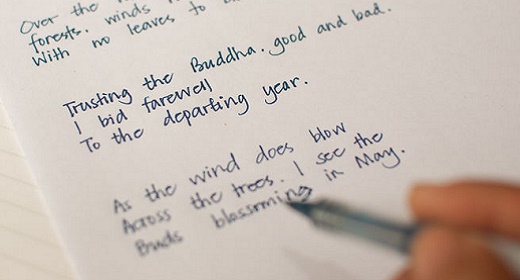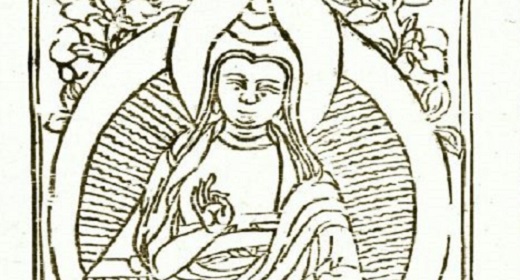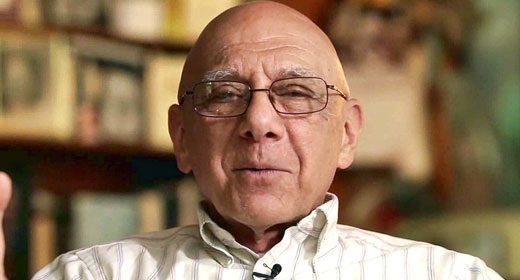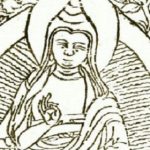by Richard Moss M.D: Poetry to soothe your soul…

Since I know that many people have a deep fear of risking embarrassment or humiliation and, rarely, if ever, allow themselves to be spontaneously creative, part of the work during my retreats is about inviting each person to learn how to channel the new energy that is awakening in them. One way that is particularly useful—especially during the rest days when everyone has lots of time to relax and self-reflect—is to explore writing, including writing poetry.
Writing, of course, is a powerful way to creatively channel emotion and feeling, or to give life to your perceptions and ideas. If you allow yourself to pursue writing, what matters is that you are willing to risk the creative process—that you are willing to make the effort to challenge yourself. What doesn’t matter is whether what you write is “good” by anyone’s standards, including your own.
Here is what I suggest to the participants in my retreats and seminars, and you can explore it for yourself if you wish (note that you will need a notebook or journal of some kind): Spend some time sitting in one place, outside in nature if possible, and notice as much as you can about that tiny piece of the world. Next, write a poem, drawing inspiration from what you observe in your environment and giving written voice to your inner state.
You may want to start by composing a haiku, a form of Japanese poetry that uses 17 morae or sound phrases (what we would call syllables, although it is not quite identical) organized in three lines of 5-7-5 syllables. Here is an example of a haiku, using one of my own creations:
The bird’s darting flight
Insects caught for hungry mouths
Death renewing life
Poetry in general and haiku in particular are ways of reaching to the core of your seeing, both outwardly and inwardly, and then translating that into a mode that uses words. It is a way of conveying through language precise images while sensing a larger theme that unites those particular images.
In my book Inside-Out Healing, you have seen how often it is words, and stories in particular, that get you into trouble. In the writing that I propose you explore, words can also be redeeming. You can practice using haiku, or some form of metaphorical expression, to learn to channel your inner world—to express creatively whatever feelings or states of being you may spontaneously find yourself in—instead of letting the ego take it over.
If you are feeling lonely, instead of writing “I am lonely,” or trying to write about being lonely and thereby identifying more with it, you can let loneliness initiate a poem. You can choose images from the world around you that help you write about loneliness metaphorically.
You might observe a solitary tree and start with that as a symbol for loneliness. Then perhaps you can see that the tree isn’t really alone and maybe write: “A solitary tree / never refusing the sun’s warmth / uncomplaining in the wind / in solemn dignity stands / a lone sentinel beneath the ever-changing sky.” This is a poetic way to let your inner world and outer world begin to unite in creative collaboration. It is a kind of intimate dance of impressions and feelings translated into words that allows new associations and movements of feeling and appreciation for life and for yourself. Not only have you prevented yourself from plunging into loneliness, but you have also creatively channeled that feeling and allowed it to lead you to a new space.
This is something you can do anywhere: you can stay present and take even the most vulnerable feelings and let them become the inspiration for a poem, drawing, or song. One of the most powerful things is to speak or sing out loud and hear you own voice giving expression to a feeling without collapsing into that feeling.
This is what songwriters do: they start from their own passion or angst or outrage. The best songs speak of feelings that we all understand and put them into some kind of context we recognize. You can learn to write your own poems or sing your own songs and hear your voice discovering the words you didn’t know you would say or sing until they started flowing forth from you.
One simple guideline is very important: avoid using the words I or me. This means that you do not refer to yourself in the first person. By not using the first person, there is less identification with what is written or said. If you want to write about yourself, refer to yourself as “he” or “she,” “him” or “her,” or use your name. This gives you distance, as if you are looking at yourself instead of caught up in yourself.













































